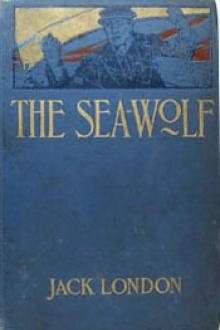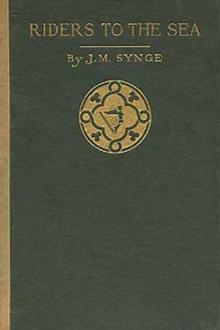Genre Adventures. Page - 5

balmy breeze fanned my cheek, and I thought of home, and the garden at the back of my father's cottage, with its luxuriant flowers, and the sweet-scented honey-suckle that my dear mother trained so carefully upon the trellised porch. But the roaring of the surf put these delightful thoughts to flight, and I was back again at sea, watching the dolphins and the flying-fish, and reefing topsails off the wild and stormy Cape Horn. Gradually the roar of the surf became louder and more distinct. I thought of being wrecked far far away from my native land, and slowly opened my eyes to meet those of my companion Jack, who, with a look of intense anxiety, was gazing into my face.
"Speak to us, my dear Ralph," whispered Jack, tenderly, "are you better now?"
I smiled and looked up, saying, "Better; why, what do you mean, Jack? I'm quite well"
"Then what are you shamming for, and frightening us in this way?" said Peterkin, smiling through his tears; for the poor boy had been really under the impressi

there rang out overhead a startling cry from the crow's-nest:
"Something ahead, sir--can't make it out."
The first officer sprang to the engine-room telegraph and grasped the lever. "Sing out what you see," he roared.
"Hard aport, sir--ship on the starboard tack--dead ahead," came the cry.
"Port your wheel--hard over," repeated the first officer to the quartermaster at the helm--who answered and obeyed. Nothing as yet could be seen from the bridge. The powerful steering-engine in the stern ground the rudder over; but before three degrees on the compass card were traversed by the lubber's-point, a seeming thickening of the darkness and fog ahead resolved itself into the square sails of a deep-laden ship, crossing the Titan's bow, not half her length away.
"H--l and d--" growled the first officer. "Steady on your course, quartermaster," he shouted. "Stand from under on deck." He turned a lever which closed compartments, pushed a button marked--"Captain's Room," and cr

little later I heard the stroke of oars, growing nearer and nearer, and the calls of a man. When he was very near I heard him crying, in vexed fashion, "Why in hell don't you sing out?" This meant me, I thought, and then the blankness and darkness rose over me.
CHAPTER II
I seemed swinging in a mighty rhythm through orbit vastness. Sparkling points of light spluttered and shot past me. They were stars, I knew, and flaring comets, that peopled my flight among the suns. As I reached the limit of my swing and prepared to rush back on the counter swing, a great gong struck and thundered. For an immeasurable period, lapped in the rippling of placid centuries, I enjoyed and pondered my tremendous flight.
But a change came over the face of the dream, for a dream I told myself it must be. My rhythm grew shorter and shorter. I was jerked from swing to counter swing with irritating haste. I could scarcely catch my breath, so fiercely

elt sure--he alone would know how to deal with the spurious menace of wind and seas. He knew what to think of it. Seen dispassionately, it seemed contemptible. He could detect no trace of emotion in himself, and the final effect of a staggering event was that, unnoticed and apart from the noisy crowd of boys, he exulted with fresh certitude in his avidity for adventure, and in a sense of many-sided courage.
CHAPTER 2
After two years of training he went to sea, and entering the regions so well known to his imagination, found them strangely barren of adventure. He made many voyages. He knew the magic monotony of existence between sky and water: he had to bear the criticism of men, the exactions of the sea, and the prosaic severity of the daily task that gives bread--but whose only reward is in the perfect love of the work. This reward eluded him. Yet he could not go back, because there is nothing more enticing, disenchanting, and enslaving

well said," replied Mr. Campbell, heartily. "And now to cometo the material, or (to make a quibble) to the immaterial. I have herea little packet which contains four things." He tugged it, as he spoke,and with some great difficulty, from the skirt pocket of his coat. "Ofthese four things, the first is your legal due: the little pickle moneyfor your father's books and plenishing, which I have bought (as I haveexplained from the first) in the design of re-selling at a profit tothe incoming dominie. The other three are gifties that Mrs. Campbell andmyself would be blithe of your acceptance. The first, which is round,will likely please ye best at the first off-go; but, O Davie, laddie,it's but a drop of water in the sea; it'll help you but a step, andvanish like the morning. The second, which is flat and square andwritten upon, will stand by you through life, like a good staff for theroad, and a good pillow to your head in sickness. And as for the last,which is cubical, that'll see you, it's my pra

e captors. 'Its flesh,' wrote Cartier, 'was as good to eat as any heifer of two years.'
The explorers sailed on westward, changing their course gradually to the north to follow the broad curve of the Atlantic coast of Newfoundland. Jutting headlands and outlying capes must have alternately appeared and disappeared on the western horizon. May 24, found the navigators off the entrance of Belle Isle. After four hundred years of maritime progress, the passage of the narrow strait that separates Newfoundland from Labrador remains still rough and dangerous, even for the great steel ships of to-day. We can imagine how forbidding it must have looked to Cartier and his companions from the decks of their small storm-tossed caravels. Heavy gales from the west came roaring through the strait. Great quantities of floating ice ground to and fro under the wind and current. So stormy was the outlook that for the time being the passage seemed impossible. But Cartier was not to be baulked in his design. He cast anchor a

"Him fella my brother belong me," was the answer. "Him fella dietoo much."
"You sing out, him fella brother belong you die too much," thewhite man went on in threatening tones. "I cross too much alongyou. What name you sing out, eh? You fat-head make um brotherbelong you die dose up too much. You fella finish sing out,savvee? You fella no finish sing out I make finish damn quick."
He threatened the wailer with his fist, and the black cowered down,glaring at him with sullen eyes.
"Sing out no good little bit," the white man went on, more gently."You no sing out. You chase um fella fly. Too much strong fellafly. You catch water, washee brother belong you; washee plenty toomuch, bime bye brother belong you all right. Jump!" he shoutedfiercely at the end, his will penetrating the low intelligence ofthe black with dynamic force that made him jump to the task ofbrushing the loathsome swarms of flies away.
Again he rode out into the reeking heat. He clutched the black'sneck ti

e springing back, when released, to its original position and shape. This gift naturally delighted the two lads immensely.
At length their final orders came, bidding them be on board by the 20th of July, without fail, as the ship and fleet sailed on the 21st at daybreak.
Roger and Harry accordingly packed their belongings, and, girding on their new swords, started down the river early the next day, accompanied by Roger's parents and Harry's sister, all of whom were anxious to see as much of the two lads as possible before they left.
They all arrived in Plymouth in the afternoon, and the lads having reported themselves, and formally joined their ship, the entire party proceeded to Harry's house to spend the night.
They all rose in the early hours of the next morning, and the last farewells were said upon the quay, while the boat from the Stag Royal remained alongside to convey them to the ship. Roger's mother wept copiously, and fervently prayed that her son might return sa

uld this well have been otherwise. Cast in a mould peculiar to the finest physical examples of those Englishmen in whom the Saxon strain would seem not at all to partake of any Norman or other admixture, he showed in face that humane look of reposeful good nature which the Greek sculptor in some instances gave to his heroic strong man, Hercules. But this again was subtly modified by another and pervasive quality. The ear, small and shapely, the arch of the foot, the curve in mouth and nostril, even the indurated hand dyed to the orange-tawny of the toucan's bill, a hand telling alike of the halyards and tar-bucket; but, above all, something in the mobile expression, and every chance attitude and movement, something suggestive of a mother eminently favored by Love and the Graces; all this strangely indicated a lineage in direct contradiction to his lot. The mysteriousness here became less mysterious through a matter- of-fact elicited when Billy, at the capstan, was being formally mustered into the service. Ask

y the sea.
CATHLEENHow would they be Michael's, Nora. How would he go the lengthof that way to the far north?
NORAThe young priest says he's known the like of it. "If it'sMichael's they are," says he, "you can tell herself he's got aclean burial by the grace of God, and if they're not his, letno one say a word about them, for she'll be getting her death,"says he, "with crying and lamenting."
[The door which Nora half closed is blown open by a gust ofwind.]
CATHLEEN[Looking out anxiously.]
Did you ask him would he stop Bartley going this day with thehorses to the Galway fair?
NORA"I won't stop him," says he, "but let you not be afraid.Herself does be saying prayers half through the night, and theAlmighty God won't leave her destitute," says he, "with no sonliving."
CATHLEENIs the sea bad by the white rocks, Nora?
NORAMiddling bad, God help us. There's a great roaring in thewest, and it's worse it'll be getting when the tide's turned tothe wind.
[She goes over to